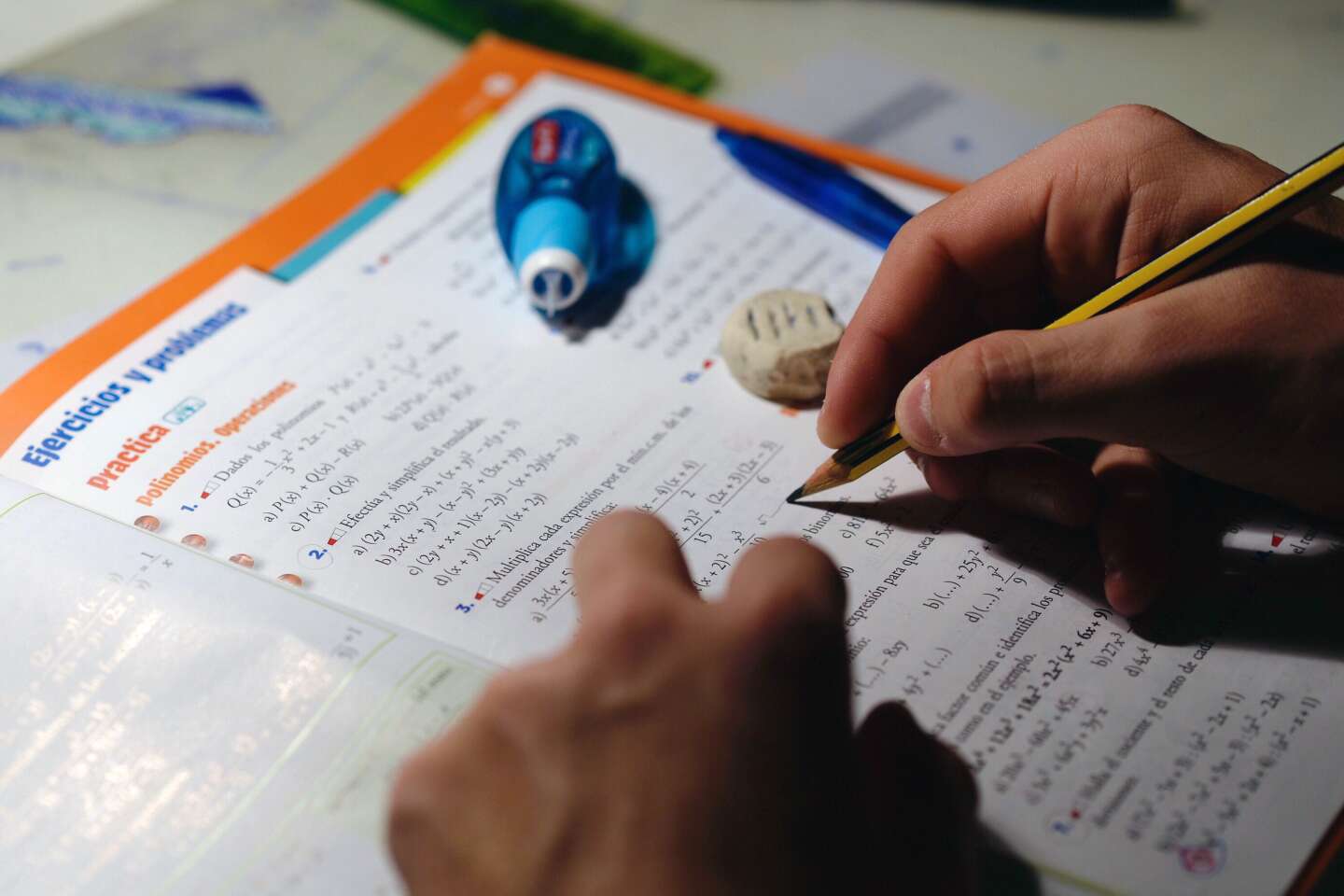


In the more than 20 years of the Programme for International Student Assessment (PISA), France has never recorded such a drop in its results. This flagship survey, on which education ministries base their reforms, is conducted every three years by the Organisation for Economic Co-operation and Development (OECD). Carried out a year late due to the Covid-19 pandemic, the 2022 survey involved 690,000 teenagers in 81 countries.
According to the results published on Tuesday, December 5, France's average score in mathematics (the main subject of this edition), which remained stable between 2006 and 2018, fell by 21 points and was the lowest ever measured since 2000. Teenagers' score in reading comprehension, meanwhile, has dropped 19 points since 2018, while it has remained stable in science, the third domain studied by PISA.
This drop in performance is part of a global trend, with the OECD average in mathematics falling by 15 points compared to 2018, having never varied by more than 4 points since 2000. This "unprecedented" drop, also observed in reading, testifies to "the shock effect of Covid-19 on most countries," states the international organization. Because the consequences of this "shock" cannot be isolated from long-term trends in the survey, the Covid-19 effect blurs the reading of this edition.
France remains within the OECD average
A sample of 8,000 French students took part in the latest PISA survey, which tests 15-year-olds in all grades. Strictly speaking, PISA does not assess a student's academic level (not all countries participating in the survey have the same national standards in this area), but rather the ability of students in a given age group to use their skills in a variety of situations, sometimes far removed from the school environment. The aim, according to the OECD, is to measure their ability to "to meet real-life challenges."
The drop in average mathematics scores is concomitant with an increase in the share of students in difficulty, which has reached 29%, while the share of best-performing students has contracted significantly, to 7%. A similar shift can be observed in reading. The French situation is not isolated on the European continent: Germany, Norway and even Finland, whose school system has often been cited as a model for its performance in PISA, have results that are deteriorating even further.
Nonetheless, France remains on par with the 37 OECD countries that took part in the 2022 survey in all three areas. In mathematics, its score (474, versus 472 in the OECD) is comparable to those of Germany, Spain, the United States, Italy and Norway, but below that of the United Kingdom and Estonia. Three Asian countries (Singapore, South Korea, Japan) recorded the highest scores.
You have 65% of this article left to read. The rest is for subscribers only.
